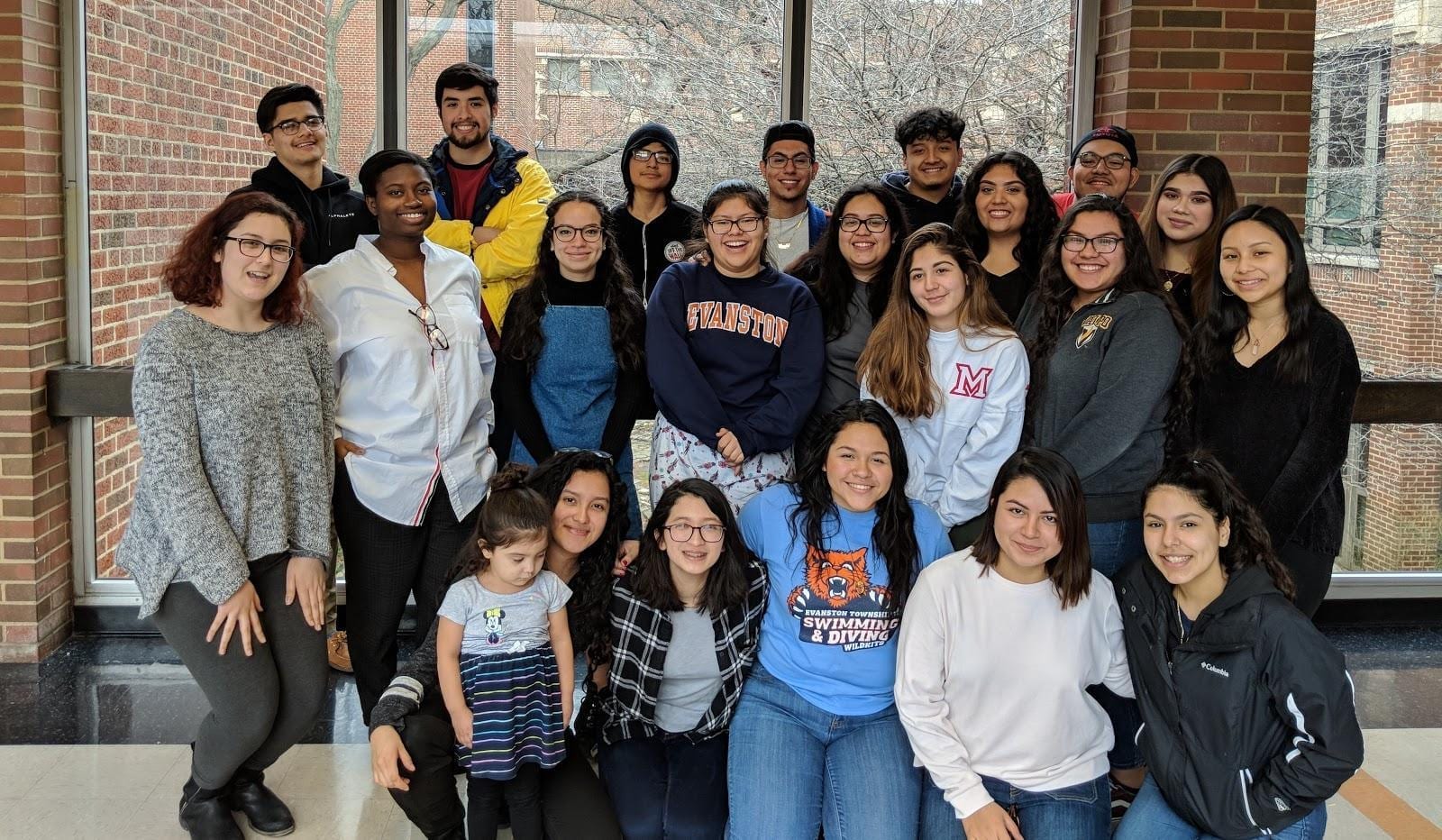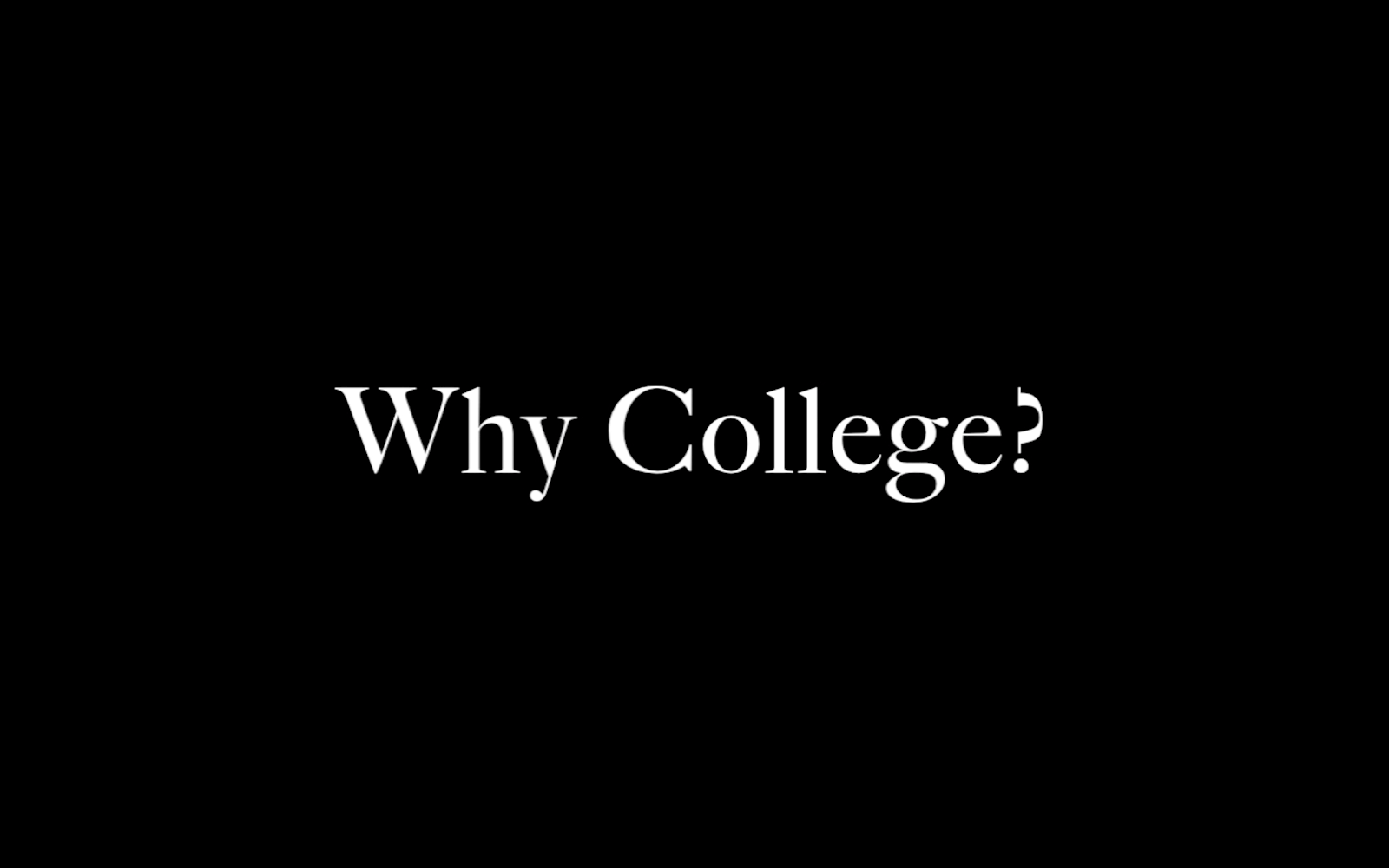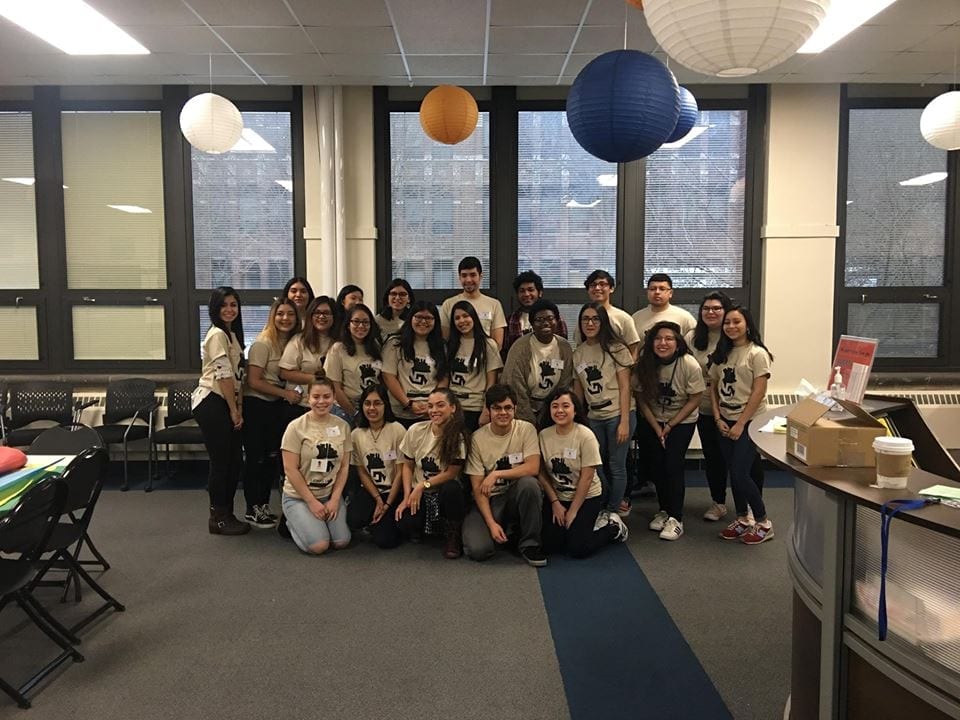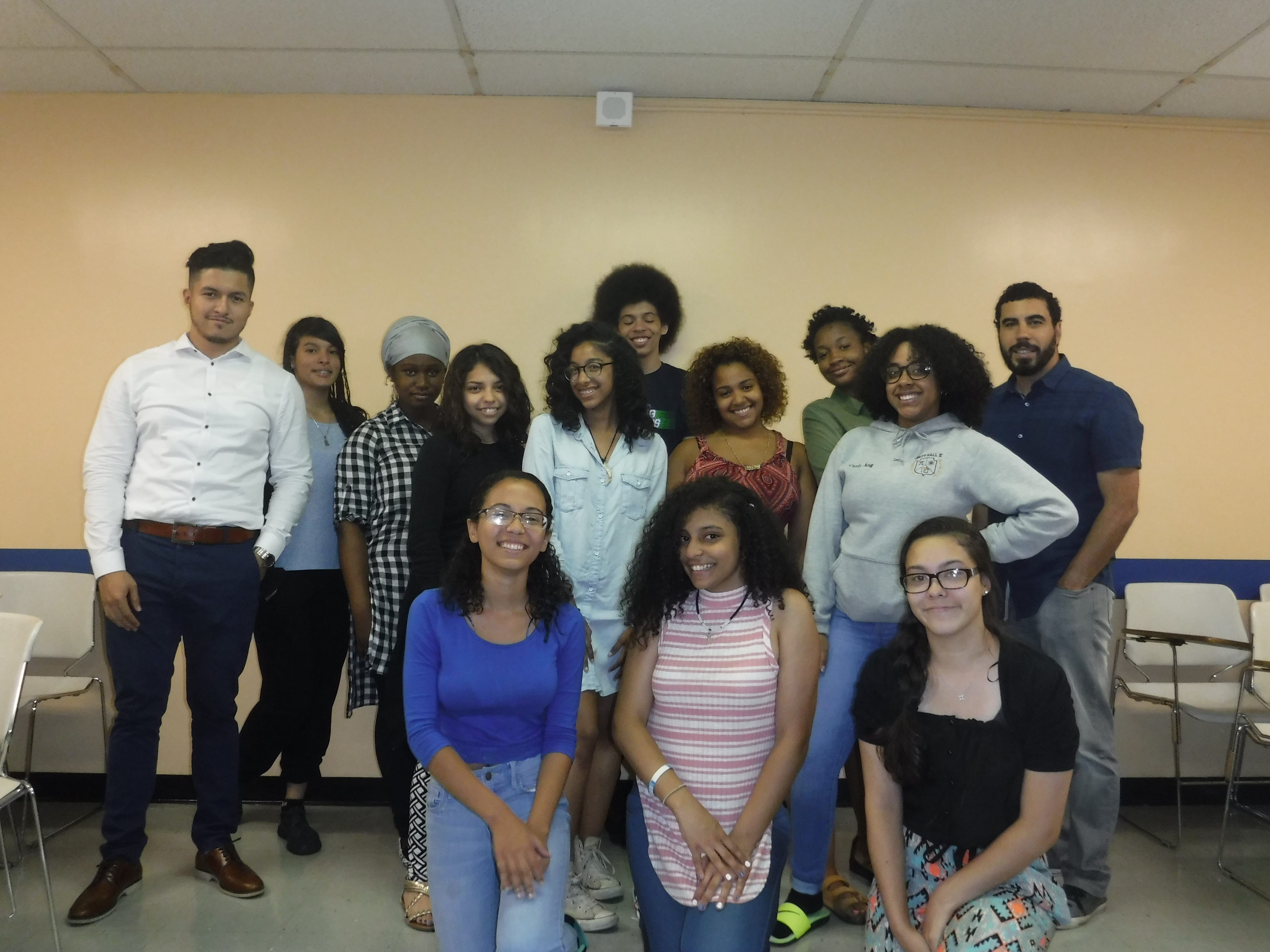(RE)IMAGINING OUR CITY (2018)
Utilizing a cross-generational mentoring framework, the summer institute paired Northwestern faculty, graduate students, undergraduates, and CPS rising seniors to critically examine the rapid gentrification taking place within the Chicagoland area. Utilizing a Youth Participatory Action Research (YPAR) epistemology, participants–co-researchers–conducted rigorous community based research on the ways gentrification has/is impacting their communities and lived experiences. For six weeks, students grappled with critical theory and ethnographic and community-based research methodologies as they explored what gentrification is, examined its effects, and considered how to address it from a community perspective. Each participant was exposed to aspects of core academic milestones and was mentored in navigating potential barriers and resources for pursuing higher education while gaining an apprenticeship in community-based research.
Timeline of Past Projects

LatinX Summit 2018: Encuentra Tu Grito: Find Your Voice (2018, Winter)
We continued our collaboration with local northshore high school students for 2018. The 14 week-long program including 16 students, almost half of which were returning students. Our focus was on original research on their neighborhood, and sessions were led by undergrads, not a facilitator. Learning the history of their city included constructing a survey, conducting interviews and learning through oral history, and using research methods.
The workshops for LatinX Summit 2018 included: Oral Histories from Alumni; Surveillance at High School; Critique of the Sexual Education Curriculum at High School; School Life at High School; and Housing and Segregation in their City.
The takeaways from this project are relevant to research, working in groups to enact change, and making change in institutions. They include: learning by doing, living, and creating; seeing collaboratives as “ecosystems”; the importance of needs and politics; negotiating high school; situating knowledges; and research versus program.
Latinx United: Embracing Our Past, Embracing Our Future (2017, Winter)
In 2017, we started a collaboration with a local northshore high school and used the annual Latinx Summit as a platform to showcase student led projects. The groups ranged in size and met on Saturdays. The students felt comfortable setting meetings on their own time outside of Saturdays. The space was comfortable for the students, but we addressed power dynamics within the group regardless. The work centered student experiences as valid, qualitative data.
Their projects reflected the young Latinx-American experience as seen from the transitory phase into adulthood. Their projects included: Build Bridges, Not Walls; Youth Movements; Creating a New Imaginary; Exploring Experiences, LatinX Culture; Expressing Resistance; Intersectional Identities in the LatinX Community; and Dissecting the American Dream.
By the end of their time with us, we felt that the students had gained more confidence in researching and presenting and had become more empowered through doing so. Their work with damage narratives to (re)claiming identities increased their own agency, autonomy, and knowledge, and they created new imaginaries. The students increased leadership roles on campus and connected the project to lived experiences at the high school.

Critiquing College Transitions and Applications (2016, Fall)
In the fall of 2016, we worked with another Chicago high school. The curriculum was based on being critical of the college process while simultaneously helping students navigate it. The curriculum was less structured, and it was planned to be tailored to the specific needs and interests of the students. We brought a greater emphasis on the use of non-traditional mediums.
The project interrogated the college application process. We questioned why one goes to college, and who is allowed access to college. We explored the educational inequality in higher education. The topics explored in this project included: why college, accessibility, which college, personal statements & essays, and navigating financial aid. In recruiting, we shift our approach to reach out to students using social media, graphics, and video.
Our takeaways, and the takeaways of the students, included areas relevant to critiquing college while simultaneously applying to and being a part of college: negotiating politics of space, the importance of time, student outreach processes, social media use and importance, and the existence of the borders of Chicago.
Bronx Dynamic Revolutionaries (2016, Summer)
In the summer of 2016, we went to New York in collaboration with the College Now program under the City University of New York. The six week long curriculum was based in introducing students to more academic, college-level work, and it was balanced with more accessible media, such as online pieces, social media, and YouTube. The group grew more organically as students brought friends along to join. We also sought to focus on college readiness, accessibility, and the college application process.
We made our issue topics relevant to our location, the Bronx. The topics included: gentrification, youth activist movements, graffiti, Black Lives Matter, Bronx Lincoln Medical Center, Bronx Terminal Market, and Flight 587 Memorial. We focused again on Youth Participatory Action Research. We also utilized social media through Facebook and Instagram campaigns.
Our takeaways from this project are thanks to working directly with students. Student participants are often the best recruiters. By providing knowledge and a safe space, students will come, and students want to be civically engaged. Summer time is a competition for students’ time, with camps, jobs, internships, and vacations taking up students’ days. Memes are a powerful form of spreading knowledge. There are differences between class and collaborative.
Ethnic Studies in Our Barrios (2016, Winter/Spring)
Our first project started in the winter/spring of 2016. Working with the seniors of a CPS alternative high school in northwest Chicago, we worked alongside the students to develop their senior thesis. Our curriculum was a 10-week ethnic studies program centered on social justice. The curriculum’s topics included race/ethnicity & identity, history of schooling, indigenous Chicago, gentrification, and social movements. There was an emphasis on critical consciousness in navigating the borders of Chicago’s neighborhoods.
The seniors’ theses topics ended up examining the connections between issues affecting much of the student body: gangs & Greek-life organizations, new school vs old school gangs, indigenous Puerto Rico & Mexico, peer pressure & schooling, miscarriage & mental health, North/Southside gangs & the economy, murders in Chicago and police investigation, the history of trap music, CTA access & gentrification, and tagging as vandalism vs tagging as art.
By the end of our time with the seniors, the students had been introduced and explored the politics of their school, the constraints of an alternative-school structure, issues of travel, mentorship versus Youth Participatory Action, education in an uncompromised learning space, and the problems of structure.





